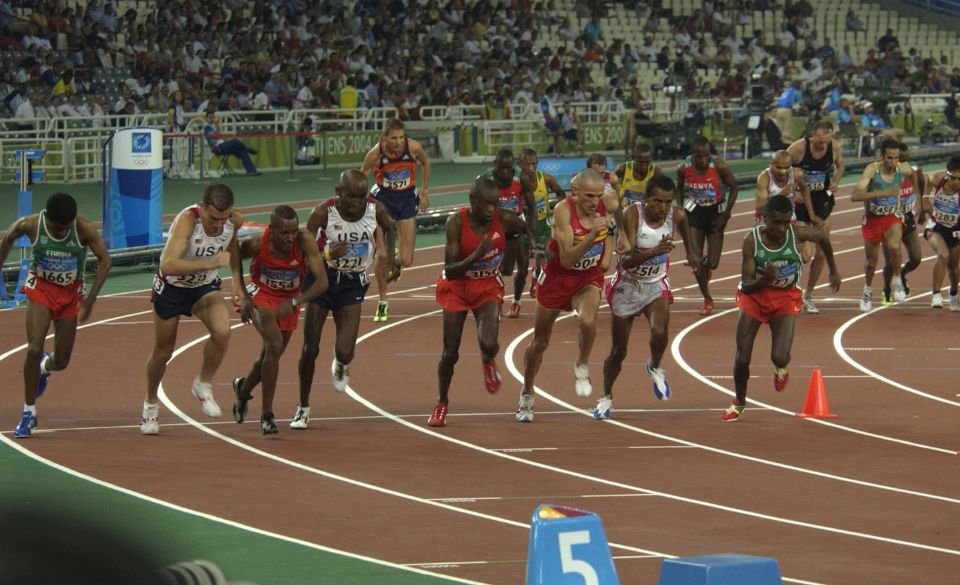
How Do Athletes Qualify for the Olympics?
Page Contents
The Olympic Games are the pinnacle of athletic achievement, where athletes from around the world gather to compete at the highest level. But have you ever wondered how these athletes qualify for the Olympics? The road to Olympic qualification is a challenging and rigorous process that varies depending on the sport and the country. In this blog post, we will explore the different pathways athletes take to secure their spot at the Olympic Games.
Olympic Qualification: A Multifaceted Journey
Olympic qualification is a multifaceted journey that requires athletes to meet specific criteria set by their respective sport’s governing body and the International Olympic Committee (IOC). The qualification process is designed to ensure that only the most skilled and deserving athletes participate in the Games.
The criteria for qualification can vary significantly across different sports. Some sports have specific performance standards that athletes must meet, such as achieving a certain time, score, or ranking in qualifying events. For example, track and field athletes may need to run a specified time in their respective events to secure a spot. On the other hand, team sports often have qualification tournaments, where teams compete against each other to earn a place in the Olympics.
Country-Specific Qualification Processes
In addition to sport-specific criteria, each country typically has its own qualification process to determine which athletes will represent them at the Olympics. National Olympic committees play a crucial role in selecting and nominating athletes to compete on behalf of their country.
Some countries use a performance-based approach, where athletes who meet or exceed specific performance criteria are automatically selected for the Olympic team. This approach ensures that only the top-performing athletes in each country have the opportunity to compete.
Other countries adopt a more subjective selection process, where a committee reviews athletes’ performances, potential, and other factors to determine the final Olympic team. This method allows for more flexibility in considering factors beyond just performance, such as an athlete’s experience, leadership qualities, and potential to excel on the Olympic stage.
Studies and Research on Olympic Qualification
Various studies and research have been conducted to analyze the Olympic qualification process and its impact on athletes. These studies aim to improve the fairness and transparency of the qualification systems and address potential issues or biases that may arise.
One study published in the Journal of Sports Sciences analyzed the qualification standards in track and field events across different countries. The researchers found that the qualification criteria varied significantly, and some countries had more challenging standards compared to others. The study highlighted the need for standardization and consistent criteria to ensure fairness among athletes.
Another research paper published in the International Journal of Sports Physiology and Performance focused on the psychological aspects of Olympic qualification. The study explored the pressure and stress experienced by athletes during the qualification process and emphasized the importance of mental preparation and support for athletes aiming to qualify for the Olympics.
Challenges and Opportunities
While the Olympic qualification process is designed to be fair and rigorous, it is not without its challenges and opportunities. Athletes face numerous obstacles on their journey to qualifying for the Olympics, including fierce competition, injuries, and the pressure to consistently perform at their best.
One of the significant challenges athletes encounter is the intense competition within their sport. In some cases, the number of available spots for the Olympics is limited, and only the top athletes in each event can secure a place. This creates a highly competitive environment where athletes must consistently surpass their rivals and achieve exceptional results to earn their spot.
Injuries also pose a significant challenge to athletes’ qualification prospects. The road to the Olympics is physically demanding, and injuries can have devastating consequences for an athlete’s chances. A serious injury or setback during the qualifying period can disrupt an athlete’s training and competition schedule, making it incredibly difficult to meet the necessary criteria within the given timeframe.
Despite the challenges, the Olympic qualification process also presents opportunities for athletes to showcase their talent and dedication. The process allows athletes to set goals, push their boundaries, and achieve personal milestones. It serves as a platform for athletes to demonstrate their skills and gain recognition not only within their sport but also on a global scale. The Olympic Games offer an unparalleled opportunity for athletes to compete against the best in the world, inspiring them to reach new heights in their athletic careers.
The Olympic Spirit: Unity and Representation
The Olympic Games are not only a celebration of athletic prowess but also an embodiment of unity and representation. The qualification process plays a crucial role in ensuring diverse participation from athletes around the world. It provides opportunities for athletes from different nations, cultures, and backgrounds to come together on a global stage and compete as representatives of their countries.
For many athletes, qualifying for the Olympics is not only a personal achievement but also a chance to inspire others and represent their nation with pride. The Olympic Games symbolize the coming together of athletes from all corners of the world, promoting understanding, friendship, and peace through sport. Athletes who qualify for the Olympics become ambassadors of their countries and contribute to the vibrant tapestry of the Games.
Summing Things Up
In conclusion, the journey to Olympic qualification is a demanding and intricate process that requires athletes to meet specific criteria set by their sport’s governing body and national Olympic committees. The qualification process varies across sports and countries, with some relying on objective performance standards and others considering a broader range of factors. Ongoing research and studies continue to shed light on the qualification process, helping to refine and improve the systems in place. As we witness the world’s top athletes compete on the Olympic stage, we can appreciate the hard work, dedication, and talent that went into securing their place at the Games.
Remember, stretching is just one component of a comprehensive marathon training program. It’s important to focus on other aspects such as strength training, endurance runs, rest, and recovery to maximize your performance and minimize the risk of injury.



